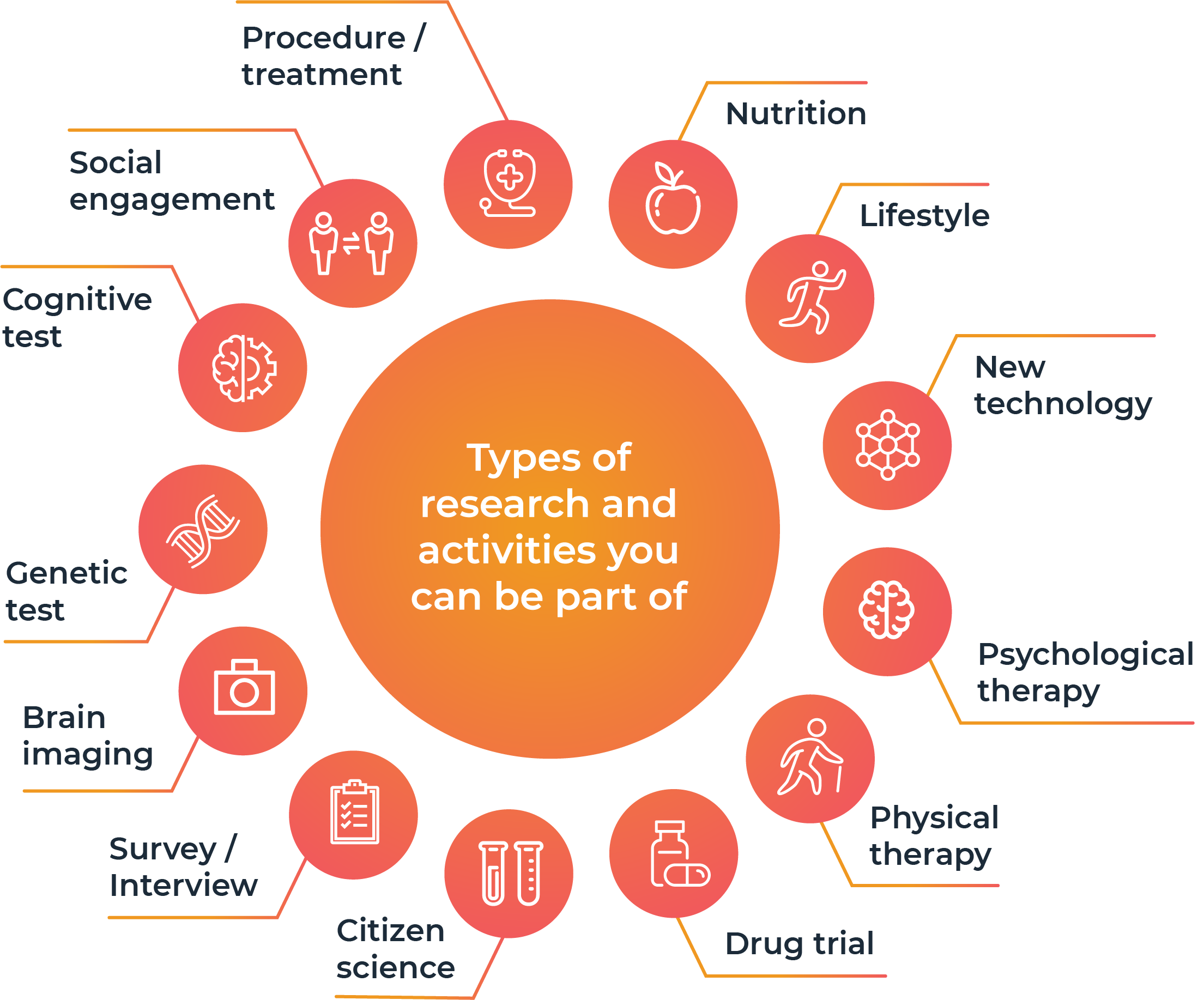Types of research

Types of research and activities you can be part of: Nutrition, lifestyle, new technology, psychological therapy, physical therapy, drug trial, citizen science, survey / interview, brain imaging, genetic test, cognitive test, social engagement and procedure / treatment.
To learn more about the types of research listed above, please click here.
Treatment
Research into treatment typically looks at how to lessen or treat the effects of dementia. These may be symptoms such as impaired cognitive function, memory problems and agitation, for example. Treatment research is also increasingly focusing on targeting the underlying brain pathology (or physical effects of dementia on the brain) in the early stages of dementia, with the goal of considerably slowing progression of dementia.
Prevention
Research into dementia prevention investigates how to stop dementia from developing in the first place. This research may look at risk factors and causes, as well as factors that may protect people from developing dementia. For example, these studies may look at the effects of medicines, diet or other lifestyle changes.
Care
Care research is about how to look after people living with dementia and the support people who provide care. It may focus on a person’s needs, from environmental factors, to food, to psychological and emotional factors. The goal of care research is to improve the comfort and quality of life of a person living with dementia, as well as the quality of life of their carers.
Cure
This type of research investigates ways to considerably slow or stop the progression of dementia. To cure dementia, with a vaccine, for example, would save countless lives into the future, but it is important that care, diagnosis, treatment and prevention research occur in the meantime, too, to reduce the number of people who develop dementia, and to help people living with dementia enjoy the best quality of life possible.
Diagnosis
The earlier that dementia can be diagnosed, the more manageable the disease will be. The aim of this type of research is find more accurate and sensitive ways of detecting dementia if it is present, as well as diagnosing the types and stage of dementia that a person has. Researchers also hope to continue to identify indicators or ‘biomarkers’ which may predict, or increase the risk of developing dementia. Doing so may allow people to modify their lifestyle to reduce the risk of developing dementia, or slow its progression.
